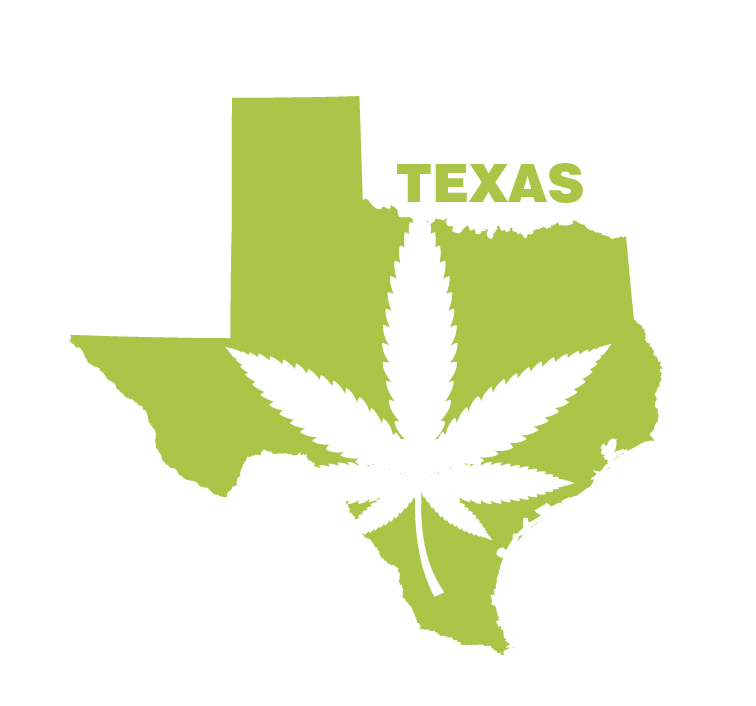
Texas state flag. Photo credit: Twenty20 photos.
Texas is one of the many states that is loosening their restrictions surrounding medical cannabis and possession.
The Lone Star State enacted a Compassionate Use Program (CUP) in 2015. This program allows eligible Texans to have access to cannabis for medical use.
On Sept. 1st, lawmakers expanded the CUP to allow medical cannabis for people suffering from post-traumatic stress disorder (PTSD) and cancer. Medical cannabis is also available for those suffering from epilepsy, seizure disorders, multiple sclerosis, spasticity, amyotrophic lateral sclerosis, autism and neurodegenerative diseases. This law expanded the number of eligible patients from 6,000 people to 114,000.
According to the program, they are allowed to use “low-THC cannabis,” or anything that is less than 1% cannabis.
The CUP requires that patients are permanent residents in the state; they have one of the specified medical conditions; and a CUP registered physician prescribes the medical cannabis.
Once the physician decides the benefits of medical cannabis outweigh the risks, the physician will enter a prescription in the Compassionate Use Registry in Texas (CURT.) Once approved, the patient or legal guardian can go to a licensed dispensary for their prescription.
According to the American Cancer Society, cannabis can have immense benefits for those suffering from cancer. It can relieve side effects of chemotherapy such as nausea, loss of appetite, and body aches. It can also help treat seizures and reduce anxiety and paranoia.
Texas’s current law prohibits smoking medical cannabis. However, patients may still consume oils, edibles, and vaporizers.
Current Cannabis Laws
In addition to medical cannabis for certain conditions, the state also attempted to lower penalties for possession.
In late April of 2021, the Texas House of Representatives passed a bill — House Bill (HB) 1535 — that lowered the criminal penalty for small possession of cannabis from a Class B demeanor to a Class C demeanor, according to the Texas Tribune. Currently, possession of 2 ounces of cannabis is punishable by a $2,000 fine and up to 180 days in jail in Texas.
If the Texas Senate passes the bill, it will also provide a pathway for officials to remove the charge of illegal cannabis possession from the record of some incriminated people, the Texas Tribune reports. This applies to an individual with 1 ounce of cannabis or less. It will reduce 1 ounce of cannabis possession to a Class C demeanor at most, meaning the defendant will have no jail time and will instead have to pay a fine.
HB 1535 went into effect on September 1st, 2021. This bill also doubled the amount of THC that patients can use in Texas’s CUP. Whereas the limit used to be 0.5% THC, it can now go up to 1%. While this is only a slight increase, experts say that this will allow cannabis products to better help their patients.
Prosecution for Cannabis
Prior to the passage of HB 1535, in March of 2021, the Dallas police department announced that they would not arrest anyone caught with less than 2 ounces of cannabis. They instead give a ticket for possession of drug paraphernalia, which is a Class C demeanor. However, if they believe that someone has the intent to distribute, has possession of a firearm, or has another charge against them, they will be arrested.
According to a recent study by the Office of Community Police Oversight and The Leadership Conference Education Fund, 85% of drug-related arrests are for possession of fewer than 2 ounces of cannabis.
Support of Cannabis in Texas
NORML, a national organization seeking to legalize cannabis, has been vocal about Texas’s restrictive cannabis laws.
“Texans support a robust and inclusive medical cannabis program that allows doctors and patients to decide their treatment and formulations,” said Jax Finkel, the executive director of Texas NORML, reports Marijuana Moment. “But then when we look at the Legislature, they are only there every two years. So any patients that are not included, have to languish for two years.”
Some have argued that a doctor should prescribe cannabis oil for acute or chronic pain instead of opioids. In 2019, there were 70,630 drug overdose-related deaths in the U.S. Officials connected over 70% of those deaths to opioids. However, there are no known deaths directly caused by cannabis, according to the CDC.
While low-dose THC products are legal for certain medical conditions; CBD is available in Texas, and nationwide. However, other derivatives of cannabis, including delta-8-THC, are not.
Furthermore, the Texas government clarified that delta-8, is in fact, illegal, according to The Dallas Morning News. Delta-8 is one of many naturally occurring compounds in cannabis or hemp plants. However, it is rare. Because it is so rare, producers must convert it from other cannabinoids – making this a legal grey area.
Texans Want More Access to Cannabis
Nine in 10 Texans support medical cannabis, according to a June 2021 report by the Texas Tribune and the University of Texas. The demographic breakdown of survey’s responses indicate a majority support legalization of cannabis regardless of their political affiliation.
The survey gave respondents four policies of cannabis to choose from. That included: If cannabis should be legal for any amount or purpose, small amounts should be legal, cannabis be used for medical use only or it should not be legal at all.
“[…] Just 13 percent still back[ed] prohibition,” reports Marijuana Moment. “A collective 60 percent said they support legalizing cannabis for any purpose, with those voters split about evenly on whether there should be possession limits.”
While it is likely that Texas will eventually legalize cannabis, it will most likely be one of the last states to do so. But over two thirds of Americans are ready for cannabis legalization.



Leave a Reply